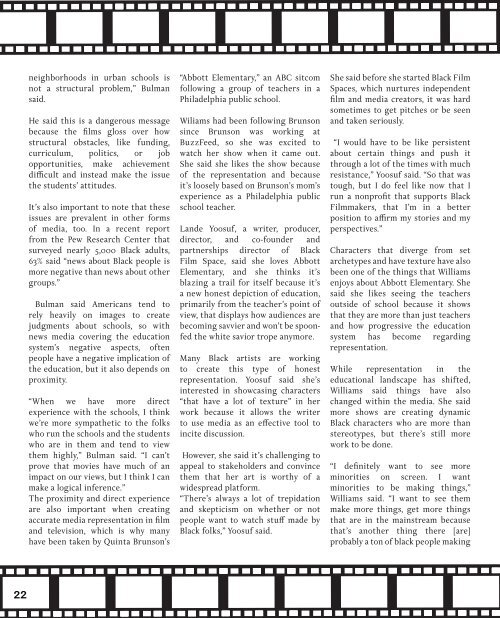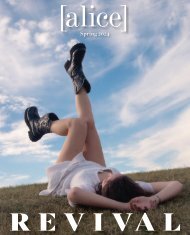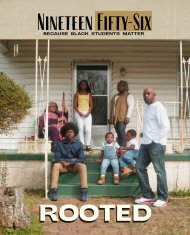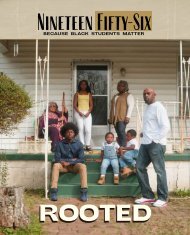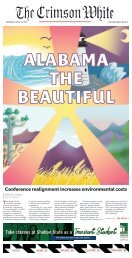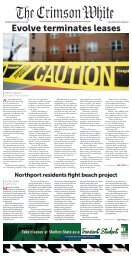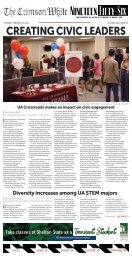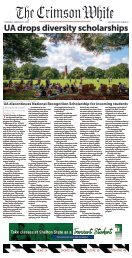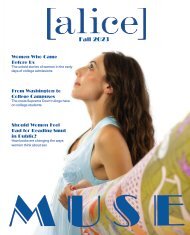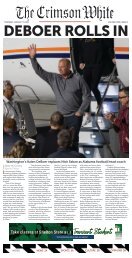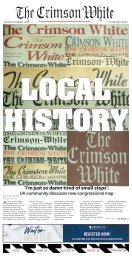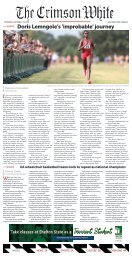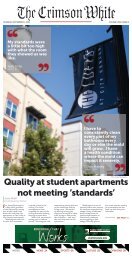Nineteen Fifty-Six Vol. 4 Issue 1
Nelson Mandela once said “Education is the most powerful weapon which you can use to change the world.” With the Fall 2023 Issue of Nineteen Fifty-Six, "Blackology" we wanted to highlight stories of Black Education from past, present and future. Focusing on the beautiful aspects of Black education but also he trials and hardships with it as well. Mostly we wanted to celebrate what it means to Black and Educated in an edition dedicated to Black educators, students and youth.
Nelson Mandela once said “Education is the most powerful weapon which you can use to change the world.” With the Fall 2023 Issue of Nineteen Fifty-Six, "Blackology" we wanted to highlight stories of Black Education from past, present and future. Focusing on the beautiful aspects of Black education but also he trials and hardships with it as well. Mostly we wanted to celebrate what it means to Black and Educated in an edition dedicated to Black educators, students and youth.
Create successful ePaper yourself
Turn your PDF publications into a flip-book with our unique Google optimized e-Paper software.
neighborhoods in urban schools is<br />
not a structural problem,” Bulman<br />
said.<br />
He said this is a dangerous message<br />
because the films gloss over how<br />
structural obstacles, like funding,<br />
curriculum, politics, or job<br />
opportunities, make achievement<br />
difficult and instead make the issue<br />
the students’ attitudes.<br />
It’s also important to note that these<br />
issues are prevalent in other forms<br />
of media, too. In a recent report<br />
from the Pew Research Center that<br />
surveyed nearly 5,000 Black adults,<br />
63% said “news about Black people is<br />
more negative than news about other<br />
groups.”<br />
Bulman said Americans tend to<br />
rely heavily on images to create<br />
judgments about schools, so with<br />
news media covering the education<br />
system’s negative aspects, often<br />
people have a negative implication of<br />
the education, but it also depends on<br />
proximity.<br />
“When we have more direct<br />
experience with the schools, I think<br />
we’re more sympathetic to the folks<br />
who run the schools and the students<br />
who are in them and tend to view<br />
them highly,” Bulman said. “I can’t<br />
prove that movies have much of an<br />
impact on our views, but I think I can<br />
make a logical inference.”<br />
The proximity and direct experience<br />
are also important when creating<br />
accurate media representation in film<br />
and television, which is why many<br />
have been taken by Quinta Brunson’s<br />
“Abbott Elementary,” an ABC sitcom<br />
following a group of teachers in a<br />
Philadelphia public school.<br />
Wiliams had been following Brunson<br />
since Brunson was working at<br />
BuzzFeed, so she was excited to<br />
watch her show when it came out.<br />
She said she likes the show because<br />
of the representation and because<br />
it’s loosely based on Brunson’s mom’s<br />
experience as a Philadelphia public<br />
school teacher.<br />
Lande Yoosuf, a writer, producer,<br />
director, and co-founder and<br />
partnerships director of Black<br />
Film Space, said she loves Abbott<br />
Elementary, and she thinks it’s<br />
blazing a trail for itself because it’s<br />
a new honest depiction of education,<br />
primarily from the teacher’s point of<br />
view, that displays how audiences are<br />
becoming savvier and won’t be spoonfed<br />
the white savior trope anymore.<br />
Many Black artists are working<br />
to create this type of honest<br />
representation. Yoosuf said she’s<br />
interested in showcasing characters<br />
“that have a lot of texture” in her<br />
work because it allows the writer<br />
to use media as an effective tool to<br />
incite discussion.<br />
However, she said it’s challenging to<br />
appeal to stakeholders and convince<br />
them that her art is worthy of a<br />
widespread platform.<br />
“There’s always a lot of trepidation<br />
and skepticism on whether or not<br />
people want to watch stuff made by<br />
Black folks,” Yoosuf said.<br />
She said before she started Black Film<br />
Spaces, which nurtures independent<br />
film and media creators, it was hard<br />
sometimes to get pitches or be seen<br />
and taken seriously.<br />
“I would have to be like persistent<br />
about certain things and push it<br />
through a lot of the times with much<br />
resistance,” Yoosuf said. “So that was<br />
tough, but I do feel like now that I<br />
run a nonprofit that supports Black<br />
Filmmakers, that I’m in a better<br />
position to affirm my stories and my<br />
perspectives.”<br />
Characters that diverge from set<br />
archetypes and have texture have also<br />
been one of the things that Williams<br />
enjoys about Abbott Elementary. She<br />
said she likes seeing the teachers<br />
outside of school because it shows<br />
that they are more than just teachers<br />
and how progressive the education<br />
system has become regarding<br />
representation.<br />
While representation in the<br />
educational landscape has shifted,<br />
Williams said things have also<br />
changed within the media. She said<br />
more shows are creating dynamic<br />
Black characters who are more than<br />
stereotypes, but there’s still more<br />
work to be done.<br />
“I definitely want to see more<br />
minorities on screen. I want<br />
minorities to be making things,”<br />
Williams said. “I want to see them<br />
make more things, get more things<br />
that are in the mainstream because<br />
that’s another thing there [are]<br />
probably a ton of black people making<br />
things, but they’re not considered<br />
mainstream.”<br />
Yoosuf said she’s ready to see more<br />
representation in the media.<br />
“Don’t just throw us a bone and then<br />
take it away,” she said. “I think this is<br />
just the beginning. I think there’s so<br />
much that we can do when it comes to<br />
our stories. So, I feel optimistic, but<br />
I’m also cautiously optimistic.”<br />
“I definitely want to see more<br />
minorities on screen. I want<br />
minorities to be making things.”<br />
(ABC/Gilles Mingasson)<br />
(ABC/Gilles Mingasson)<br />
22<br />
23


